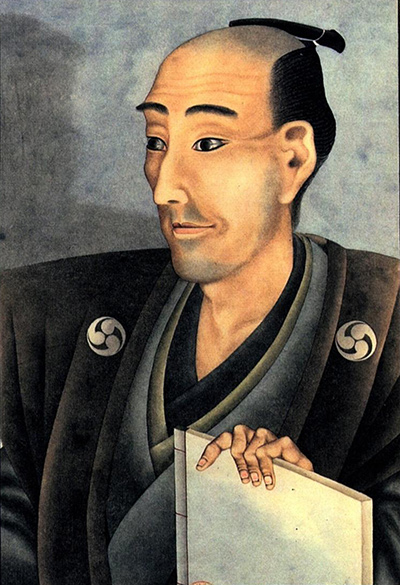Hokusai
Portrait of a Man of Noble Birth with a Book by Hokusai
Katsushika Hokusai was a Japanese artist, ukiyo-e painter and printmaker of the Edo period. Hokusai is known as one of the best Japanese artists considering his artwork to this date is viewed as revolutionary considering its mix of Japanese and western cultures. His greatest known paintings such as The Great Wave depicts Hokusai Ukiyo-e style of painting nature on a level that was not only vivid but also moving.
However, in the early 1800s Hokusai introduced a new version of his art in terms of portrait paintings. ‘A man of noble birth with a book’ was one of these revolutionary as well as rare pieces of work that have remained unexplored. A man of noble birth with a book is a 1,138 × 1,744mm, oil portrait painting inspired by the Ukiyo-e style made famous by Hokusai.
The painting is of a Japanese man wearing a black traditional robe, decorated by two noble house pins on both sides of chest. The man is seated holding a book by his left hand. The portrait shows the use of varied colures, with darker shades from the robe and the wall paint make the centrepiece livelier. An interpretation of the painting shows the mix of both western and Japanese culture. The man in the picture represents Japanese culture traditional clothing, the royal symbolism as well as the haircut.
However, instead of holding a scroll he has a book in his hand, this highlighting a foreign culture. It is for this reason that a number of artists such as Philips Koninck have seen Hokusai as less of a Japanese artist but a link between the Ukiyo-e and western portrait painting unlike Utamaro and Kunsai. In summary, the painting of ‘A man of noble birth with a book’ represents and artistic expression of how Katsushika Hokusai viewed a mix of western and Ukiyo-e would merge as one. The portrait though simple has an elegant use if both dark and light shades that ultimately highlight the mans face as a bright centrepiece.
